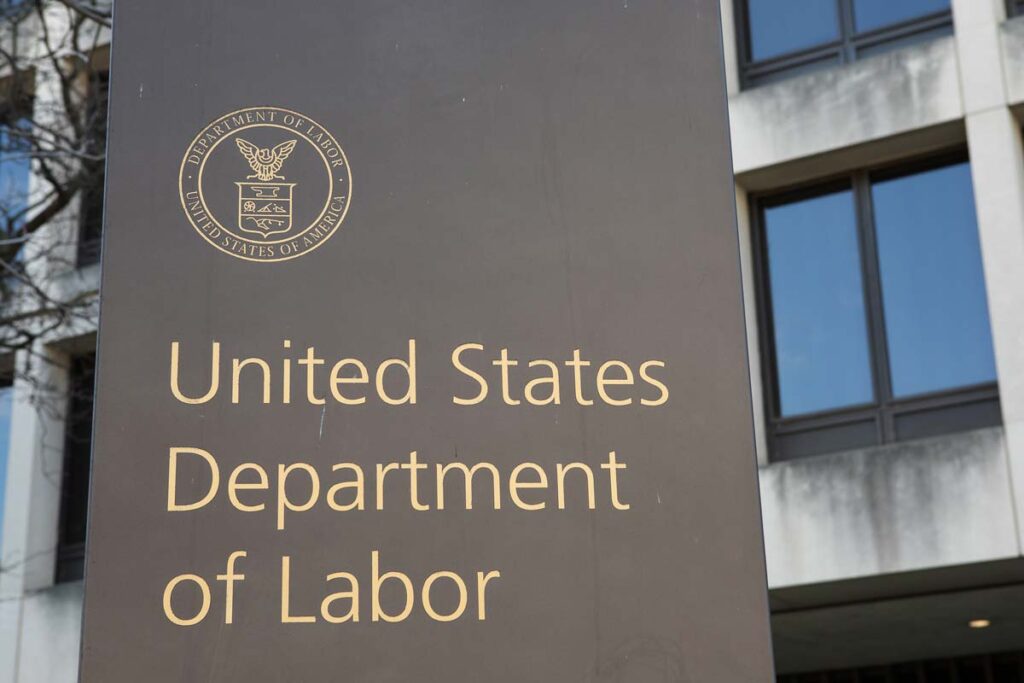
DOL overtime rules overview:
- Who: The U.S. Department of Labor has proposed new rules to raise the salary threshold for overtime eligibility.
- Why: The salary range to qualify for exemption from overtime rules is too low to ensure differentiation between exempt and nonexempt employees, the DOL says.
- Where: The new overtime rules were proposed by the Wage and Hour Division of the U.S. Department of Labor.
The U.S. Department of Labor (DOL) has proposed new federal overtime rules that would increase the salary threshold for employees’ eligibility for overtime pay, Law360 reports.
On Aug. 30, the DOL’s Wage and Hour Division announced proposed labor rules that would revise Fair Labor Standards Act (FLSA) regulations covering exemptions from minimum wage and overtime pay requirements for certain types of employees.
The proposed labor rules would raise the standard salary level for full-time workers from the current rate of $35,568 per year to about $55,000 per year.
FLSA sets forth federal overtime rules
The FLSA requires certain employers to pay employees a minimum wage and overtime pay of 1.5 times the regular rate of pay when an employee works more than 40 hours in a week. The current federal minimum wage is $7.25 per hour.
Certain roles are excluded from FLSA minimum wage and overtime requirements, including “any employee employed in a bona fide executive, administrative, or professional capacity,” the DOL explains in its proposed revision to the labor rules.
To qualify for the exemption, the employee must be paid a predetermined and fixed salary, the salary must meet a minimum specified amount and the employee’s job duties must primarily involve executive, administrative or professional duties.
The DOL notes that employers bear the burden of showing that a job meets the exception, and that job descriptions and titles are not sufficient to meet this burden.
DOL says it has been working to revise federal overtime rules to increase salary rate for exemption
In June 2021, Labor Secretary Marty Walsh said at a congressional hearing that the existing overtime exemption salary rate was too low and was under review. The Aug. 30 announcement came after several proposed timeframes in 2022.
The DOL has recognized the importance of regularly updating earnings thresholds to ensure they effectively differentiate between exempt and nonexempt workers. The agency previously noted that “even a well-calibrated salary level that is not kept up to date becomes obsolete as wages for nonexempt workers increase over time.”
The Obama administration reportedly finalized labor rules that would raise the salary level for overtime pay to $47,476, but the rule was invalidated by a Texas federal court in 2017.
The DOL notes that its proposed overtime rules would also increase the salary levels in U.S. territories for the first time since 2004.
Many class action lawsuits have been filed against employers who allegedly fail to pay minimum wage or violate overtime rules.
Boston Market was recently hit with an unpaid overtime class action alleging the restaurant chain violated the FLSA by failing to pay minimum wage and overtime to some Arizona employees.
Are you an employee who may be affected by the proposed overtime rules? Tell us your thoughts in the comments.
Don’t Miss Out!
Check out our list of Class Action Lawsuits and Class Action Settlements you may qualify to join!
Read About More Class Action Lawsuits & Class Action Settlements:
- Workers spend equivalent of 2 days in meetings, on email, study finds
- Court rules employment discrimination lawsuits can be brought under wider wage of circumstances
- New Illinois law to compensate child influencers for their work
- SpaceX discriminates against hiring asylees, refugees, DOJ lawsuit claims















3 thoughts onDepartment of Labor proposes rules to raise salary threshold for overtime eligibility
Sign me up
Does this apply to Seasonal Workers?
Add me please